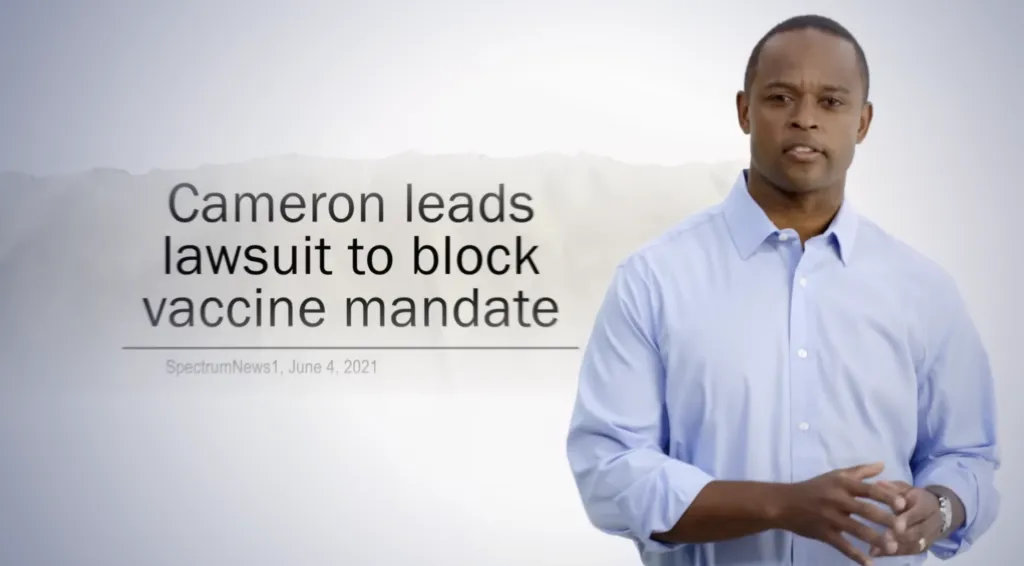A month ago, on Sept. 17, I had a terrifying car accident in southern Illinois.
It was a sunny, Sunday afternoon. I was returning home to Kentucky following my 40-year high school reunion in Missouri. I was alone. And I was driving about 50 mph when a woman made an illegal turn in front of me. I hit her at full speed.
We were both driving SUVs. And miraculously, she and I both walked away from the accident, no ambulance needed, with only minor injuries.
I tell you this story because, as often happens after a catastrophic event, we think about the ripple effects of our decisions, about how things might have gone differently. What if, I wondered, I had not stopped for gas? Left a day earlier? Not stayed so long at my sister’s house? What decisions led me to that Illinois intersection, to that moment, and how might the result have been far different, far worse, than two totaled SUVs?
In the Oct. 12 gubernatorial debate in Paducah, Attorney General Daniel Cameron made his oft-repeated assertion that “it’s crazy to have a governor who would shut down your churches,” referring to the early days of the Covid-19 pandemic. This is not a new talking point. Cameron has consistently made the shutting down of in-person church, specifically Easter services in 2020, a cornerstone of his campaign.
But what would Cameron have done differently if he had been governor in 2020?
In an address from the White House Rose Garden on March 13, 2020 — exactly one month prior to Easter Sunday — President Donald Trump declared Covid-19 a national health emergency. “To unleash the full power of the federal government … I am officially declaring a national emergency,” Trump said. “Two very big words. The next eight weeks are critical.”
The next eight weeks takes us to mid-May 2020, an entire month after Easter.
Trump spoke again from the Rose Garden on March 29, 2020, advising Americans to continue to social distance and to avoid gathering in groups of more than 10 for at least another month and perhaps until June.
Are we to believe that Cameron, had he been governor and responsible for the safety of the citizens of this commonwealth, would have outright refused guidance from the president, the leader of his own Republican Party, at the outset of a once-in-a-hundred-years pandemic?
Is this plausible?
No. It is not plausible. But he keeps repeating the claim, so we should consider the potential consequences of a Governor Cameron defying the president during a national emergency. How many more Kentuckians might have died in 2020 after such a decision? How disastrous might the ripple effect have been? And what of his own political peril in making such a rogue decision?
Merriam-Webster Dictionary defines the ripple effect as “a spreading, pervasive, and usually unintentional effect or influence.” I use my recent car accident as an example. In June 2021, I gave up alcohol. Seems unrelated, right? But more than two years later, when it came time to make the six hour drive to Missouri for my reunion, I decided to leave my small, fun-to-drive, two-seater car in the garage and drive our SUV. Why? Because I would be sober, a designated driver, responsible for getting my childhood friends home safely, and I needed room for as many people as possible.
If I had been driving my small, two-seater, I cannot imagine the extent of my injuries, or if I even would have survived. One seemingly tangential decision, with a ripple effect two years later, saved my life.
Our decisions, even the small ones, have consequences.
What Cameron continuously proposes with his but-my-opponent-closed-churches argument is that he would have made a diametrically different decision — in defiance of President Trump and all medical guidance at the time — with the unspoken caveat that innumerable lives would not have been lost.
Hogwash.
Cameron claims to be pro-life, but expects us to believe he would have enthusiastically thrown the dice and encouraged us to gather in large crowds in the first months of the pandemic; that he would have thumbed his nose at President Trump’s declaration of a “national emergency;” that he would have risked the ripple effect of his decision on the lives of the most vulnerable Kentuckians: newborns, preemies, the elderly, those in cancer treatment or with chronic lung diseases, etc.
His story is not only implausible, it is beyond comprehension. And he owes us an explanation.
--30--








